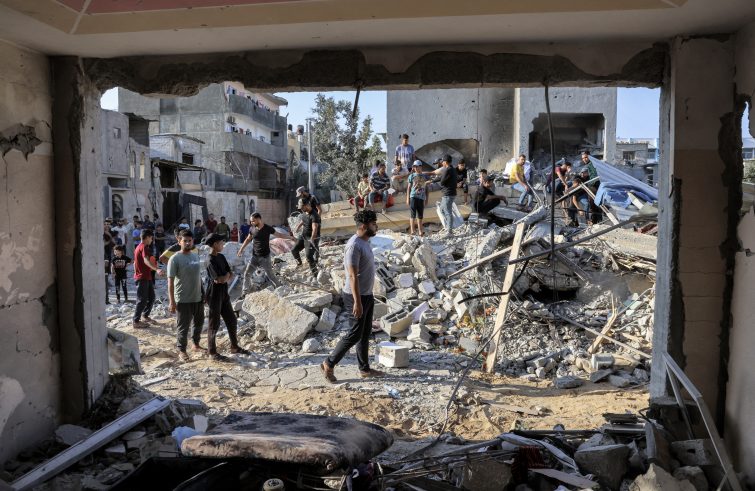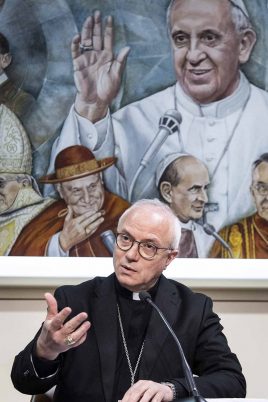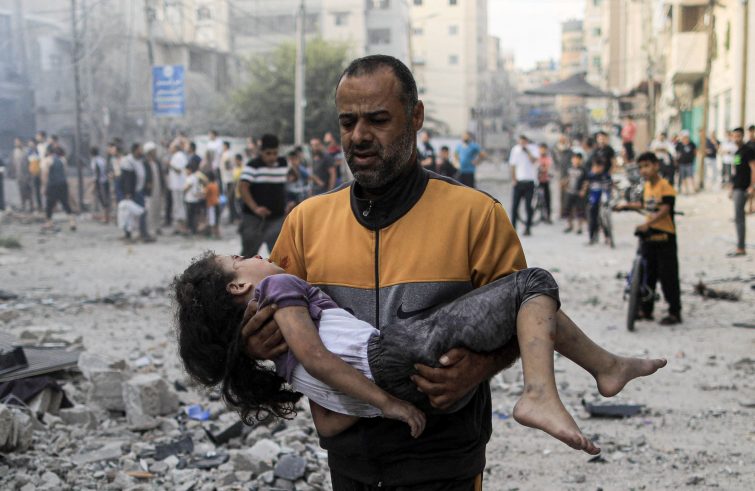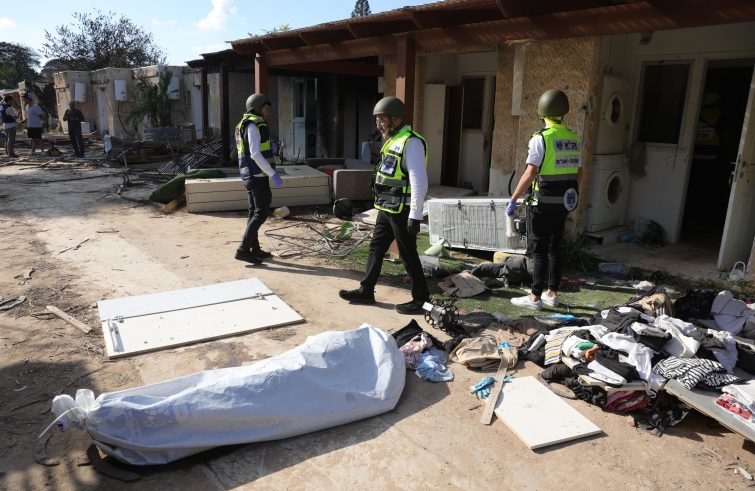
“What has happened is unacceptable, it can in no way be excused with some ‘ifs’ or ‘buts’. Of course, the general context should be known, but this can never be a justification,” said Monsignor Giuseppe Baturi, Archbishop of Cagliari and Secretary General of the Italian Bishops’ Conference, speaking on the eve of the Day of Prayer for Peace and Reconciliation in the Holy Land.

Your Excellency, the Churches in Italy are deeply bound to the Christians of the Holy Land. How are you living these dramatic hours?
With much sadness and concern. We cannot and must not be resigned to evil, to violence against children and against the most vulnerable. It is of fundamental importance to recover the capacity to be horrified, to be indignant, to be saddened by what is happening. We must not be content with a mere analysis of the situation. It’s the human aspect that prevails, the horror at the enormous amount of suffering, both physical and emotional. Our thoughts turn to the hostages, to their parents, to the barbarity that does not stop at newborn babies. And, as in Ukraine, it does not stop before the innocent and the prisoners.
Is this a condemnation of the more than 1,300 dead in the attack on Israel on 7 October and the two hundred or so hostages in the hands of Hamas?
These are civilian victims who were hunted down house by house with the aim of harming them.
What happened is unacceptable, it cannot be excused with any “ifs” or “buts”. Of course, the general context should be considered, but that cannot be an excuse.
As the Holy Father and Cardinal Parolin have reminded us, we must work seriously for a peace “built on justice, dialogue and the courage of fraternity.”
Do you fear that the conflict could spill over into other Arab countries and into the hands of those who profit from the war?
There is great concern because we see the powers of the States at play. Instead of mobilising for a just peace, they seem to be moving towards a logic of alignment and power.
Our historical memory is a constant reminder that the world’s worst catastrophes began with a shift of balances, the extent of which was not initially understood. There is great concern, especially as the principle of proportionality of response crumbles in the knowledge that we are living in the age of nuclear weapons.
Even those who advocate using proportionate force must consider the destructive capacity of modern weapons. We must be concerned. Violence needs lies and the concealment of the truth.
The situation in Gaza is tragic. Local health authorities put the death toll at more than 2,500, with an estimated 10,400 wounded. At least 500 displaced people, including several Muslim families, live in the Holy Family Latin Parish. Pope Francis has telephoned the parish priest and the nun who runs the school of the Sisters of the Rosary twice to express his closeness and sympathy…
We support our Christian brothers and sisters in their efforts to show solidarity, closeness and love to those who are suffering.
The Church, and with it the Church in Italy, is always on the side of humanity.
It must therefore intervene to alleviate suffering. But we must also ask that the love of neighbour become a political love, that is, one capable of envisioning future scenarios. After the Angelus yesterday, the Pope called for the protection of human life and for a lasting and credible peace solution.
- (Foto AFP/SIR)
- (Foto ANSA/SIR)
The Patriarchate’s School of the Sisters of the Rosary can still count on a small amount of electricity every day, thanks also to the solar panels installed with funds from Italy’s ‘8×1000′ taxpayers’ contribution. A National Day of fasting, prayer and abstinence for peace and reconciliation has been promoted by the Italian Episcopal Conference.
The Italian Church, in her love for the Holy Land, has responded to the call of Cardinal Pierbattista Pizzaballa, Catholic Patriarch of Jerusalem, by organising a choral prayer service for tomorrow, October 17, to entrust to the Lord “our desire for peace, justice and reconciliation.” We have a responsibility of closeness, of proximity to humanity, a responsibility to uncover the truth and a responsibility to promote dialogue and reconciliation.
Could the Church play a role in the complex political mediation?
The Church is ready, as Cardinal Parolin said, to use its moral influence, its position of authority with regard to the various actors, in an attempt at mediation and dialogue. The mandate to be “blessed” and to be “peacemakers” is part of our faith, but in order to be peacemakers one must be blessed in the certainty of God’s presence and in the desire to make friends. The authority that the Holy See and the Church have in these contexts and situations translates into an openness to welcome every attempt at dialogue.












